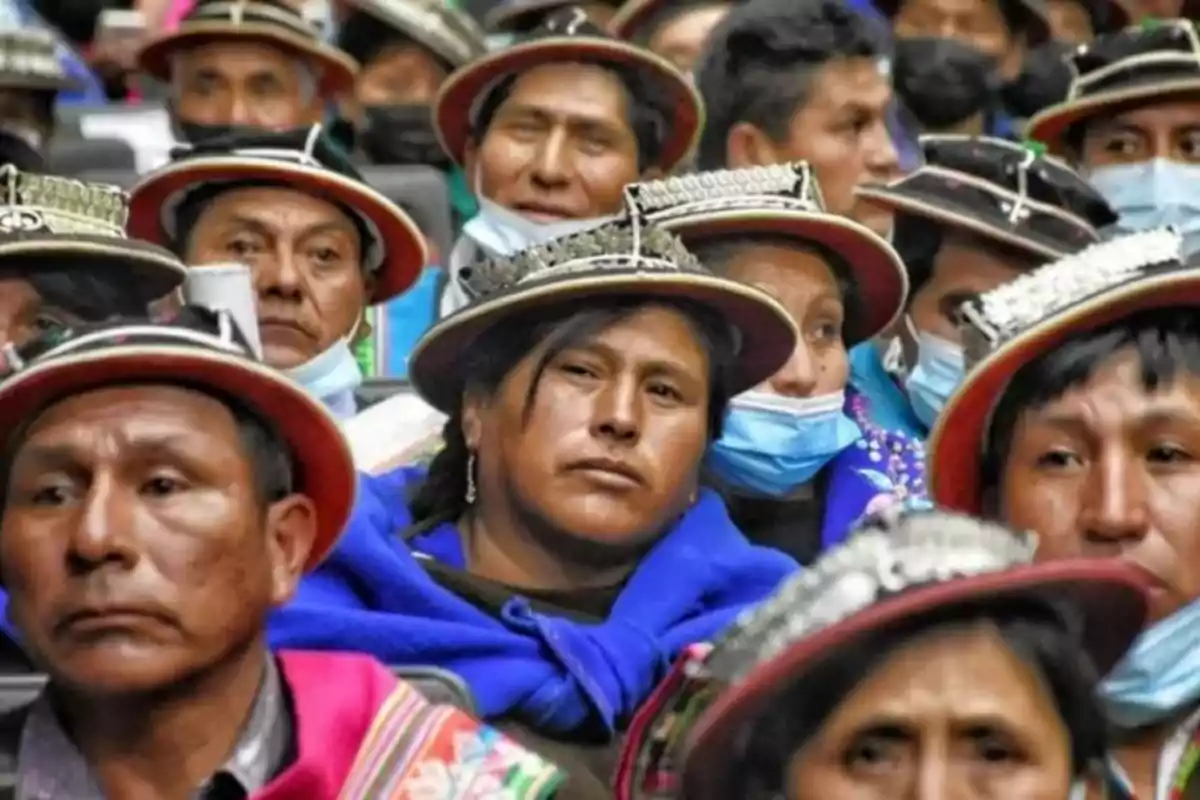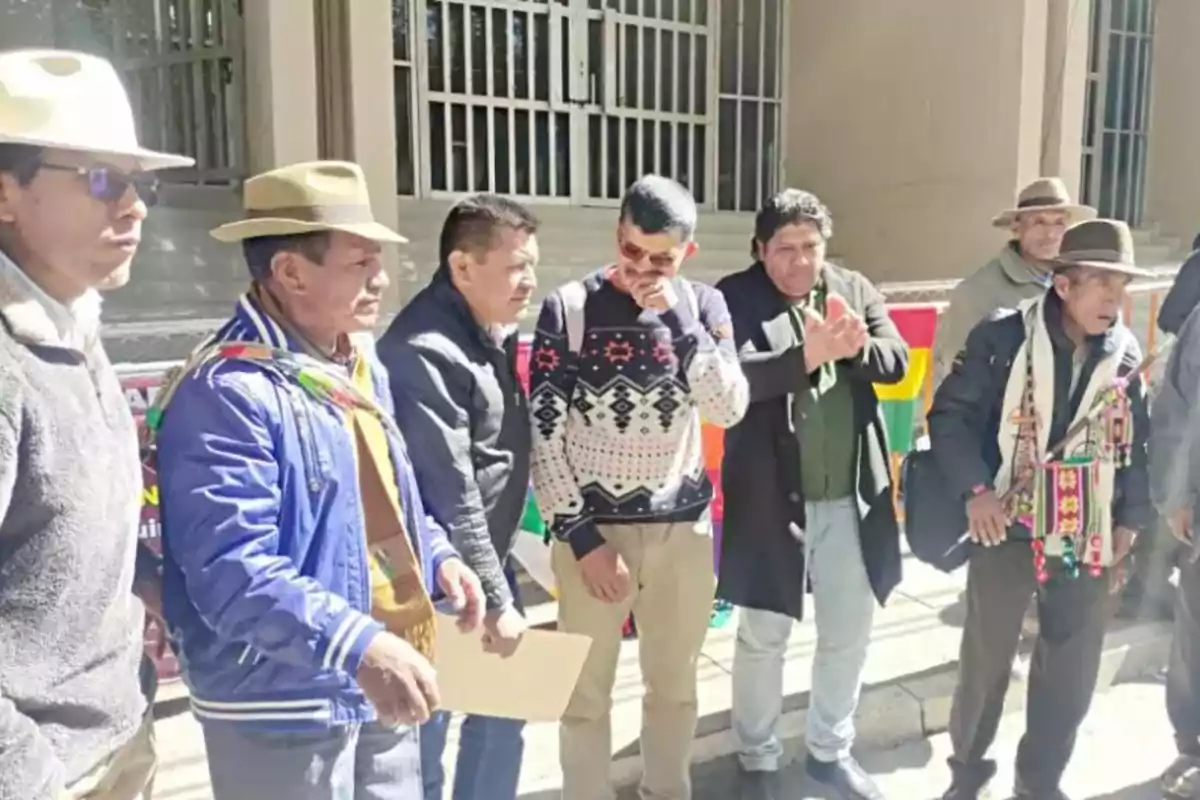
The TCP denied the unconstitutionality appeal filed by indigenous organizations.
The indigenous resource aimed to halt the elections by arguing that they should be allowed to register their own candidates
The Plurinational Constitutional Court (TCP) once again rejected a petition filed by indigenous organizations, the request sought to halt the August elections. According to the TCP, the petition did not meet the formal requirements of the Constitutional Procedural Code. In its ruling, the Admission Commission noted the lack of a motivated resolution from the Supreme Electoral Tribunal (TSE), which prevented a substantive ruling on the case.
The unconstitutionality action had been filed by Deputy Josué Ayala, an indigenous representative of MAS. It was also supported by the pre-candidate Fausto Ardaya, from the Confederation of Indigenous Peoples of Eastern Bolivia (Cidob).
They sought to enable direct indigenous candidacies for the presidential elections. They challenged articles of Law 1096 on Political Organizations. They considered that this law violates their right to participate in national elections.
The TCP reminded that, to admit an unconstitutionality action, an official resolution from the body raising the doubt is required. This requirement was not met by the TSE, which had to substantiate its observations on the current law.
Without this support, the TCP can't open the corresponding constitutional analysis. Therefore, it decided to return the process to its initial stage again. This is the second time this return has occurred.
Despite the efforts of indigenous groups, the president of the TSE, Oscar Hassenteufel, reaffirmed that they will not be able to participate in the August elections. He recalled that Article 209 of the Constitution limits indigenous participation to subnational positions.
Additionally, he cited subsection C of Article 5 of Law 1096, which reinforces this restriction. Therefore, he said, it is not within the TSE's competence to change this regulation. He noted that any change would apply in future processes.
The Cidob, doesn't give up its objective and filed another unconstitutionality petition with the TCP, requesting the suspension of the electoral calendar. They argue that the exclusion affects 34 indigenous nations of Bolivia and also requested precautionary measures for their acronym to be provisionally registered. They insist that their right to participate is guaranteed by the Constitution.
Did the plurinational constitution not address these requests?

The lawyer Luis Enrique Ardaya, legal representative of the Cidob, reported that they are exhausting national instances. He anticipated that, if no results are obtained, they will turn to the Inter-American Commission on Human Rights.
He also reiterated that the exclusion violates essential rights of indigenous peoples and accused the State of failing to fulfill its international commitments. He also pointed out that there is a "cohesion" of powers to marginalize them.
The TCP's Admission Commission reaffirmed that there are still four more petitions in process. Some were filed by opposition leaders like Miguel Roca and former magistrate Gualberto Cusi. Others question issues of gender parity in presidential tickets.
However, the TCP and the TSE stated that no action will prevent the elections from taking place. They argued that the deadlines no longer allow for substantial changes.
From the Government, the Minister of Justice, César Siles, dismissed risks for the elections and clarified that any eventual ruling would only apply to subsequent processes. He explained that the electoral calendar is already in execution and protected by the principle of preclusion. He noted that there is a campaign of "dark interests" seeking to boycott the elections and reaffirmed the commitment to respect the citizen vote.
Indigenous organizations, however, maintain their stance of resistance, leaders of the Conniob announced that they will move their protest to La Paz. They will demand the resignation of the TSE members, whom they accuse of discrimination. At the same time, they plan to request precautionary measures before international bodies.

In parallel, the Cidob recalled that the TSE had committed to enabling indigenous participation. They pointed out that in July 2024 there was an agreement in this regard and denounced that this commitment was ignored in recent institutional decisions. They criticized the lack of political will to open inclusive electoral spaces, warned that they will not abandon their demand.
For the electoral authorities, the current legal framework leaves no room for action. According to the TSE, any legislative modification should have been made before the electoral call.
They also reiterated that rules can't be altered in the middle of the process and insisted that indigenous peoples participate in local elections. They assured that their political rights have not been eliminated.
Minister Siles explained that, if any unconstitutionality petition prospers, its application will be future. He detailed that, even if the TCP ruled in favor, it would only open the door to subsequent legal reforms.
He also recalled that there is a bill in Congress for parity in presidential tickets. However, it has not yet been debated in the Senate. He concluded that the August 17 elections are firmly consolidated.
Finally in Sucre, where the TCP is located, the vigil of the indigenous groups was lifted. Representatives like Samuel Flores announced new pressure measures, now they will focus their effort on the TSE. They do not rule out expanding their claim to other international bodies.
More posts: